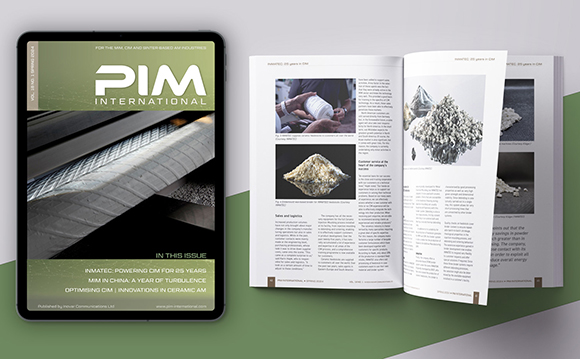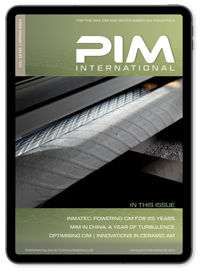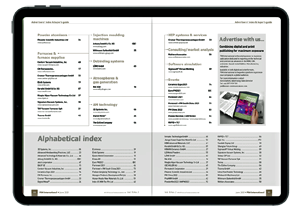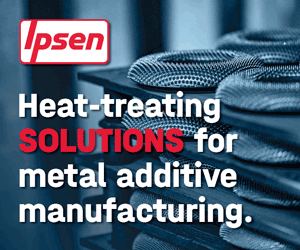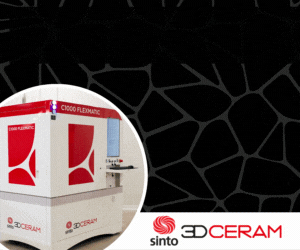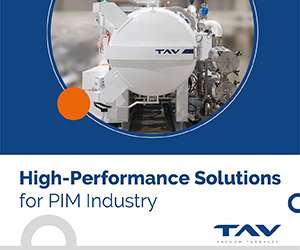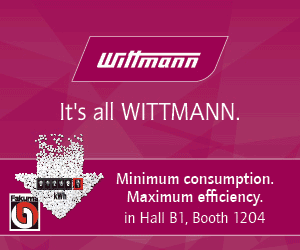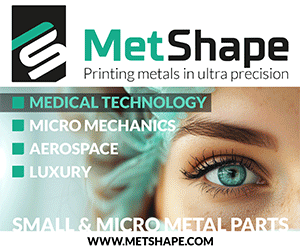Waste plastic proposed as a binder for Metal Injection Moulding
July 12, 2019

A team of researchers at SIRIM Berhad, Shah Alam, Malaysia, led by Dr Mohd Afian Omar, has found a way to make use of waste plastic as a binder in the Metal Injection Moulding process. The technique is described as an eco-friendly way to recycle waste materials, and has been successfully employed to produce high-grade stainless steel medical implant components.
“We call it the Eco-Friendly Binder System,” explained Dr Afian. “Our recipe uses waste materials such as waste plastic as a cheap and easily-sourced material for the binder in the moulding process.” For the research project, waste thermoplastic powder was obtained from waste polyolefin, such as that used in water bottles, shampoo bottles and milk bottles, by mechanical grinding. The powder was then sieved to achieve an average particle size of 200 µm.
“Because the binder is discarded during the moulding process, it is preferable for it to be made of something cheap and plentiful,” stated Dr Afian. “It is not a part of the metal itself, so why should it add to the cost of the product?”
Every company has its own binder formula, most of which are petroleum-based formulas such as polyethylene and polypropylene, which are not typically eco-friendly. By using waste plastic mixed with wax, Dr Afian stated that he has found a binder material that has zero ecological impact. “With our process, any recycled plastic will do: mineral water bottles, shampoo bottles, even toys,” he commented.
The project is a collaborative effort between researchers at SIRIM and additional researchers at the University Sains Malaysia (USM) and International Islamic University of Malaysia (IIUM). The eco-friendly binder has been shown to work with many other alloys in addition to stainless steel, and SIRIM is now continuing its research to improve the process while evaluating the suitability of the binder system with other types of metals such as high-speed steel, cobalt-based alloys and titanium.
The waste plastic binder composition is not only environmentally friendly and non-hazardous, but also enables moulding of feedstock at low moulding temperatures and pressures. This results in less wear on tooling and allows for the use of less expensive tooling materials, such as aluminium, for relatively low-volume production of green parts.
Contact: Dr Mohd Afian Omar, [email protected]




